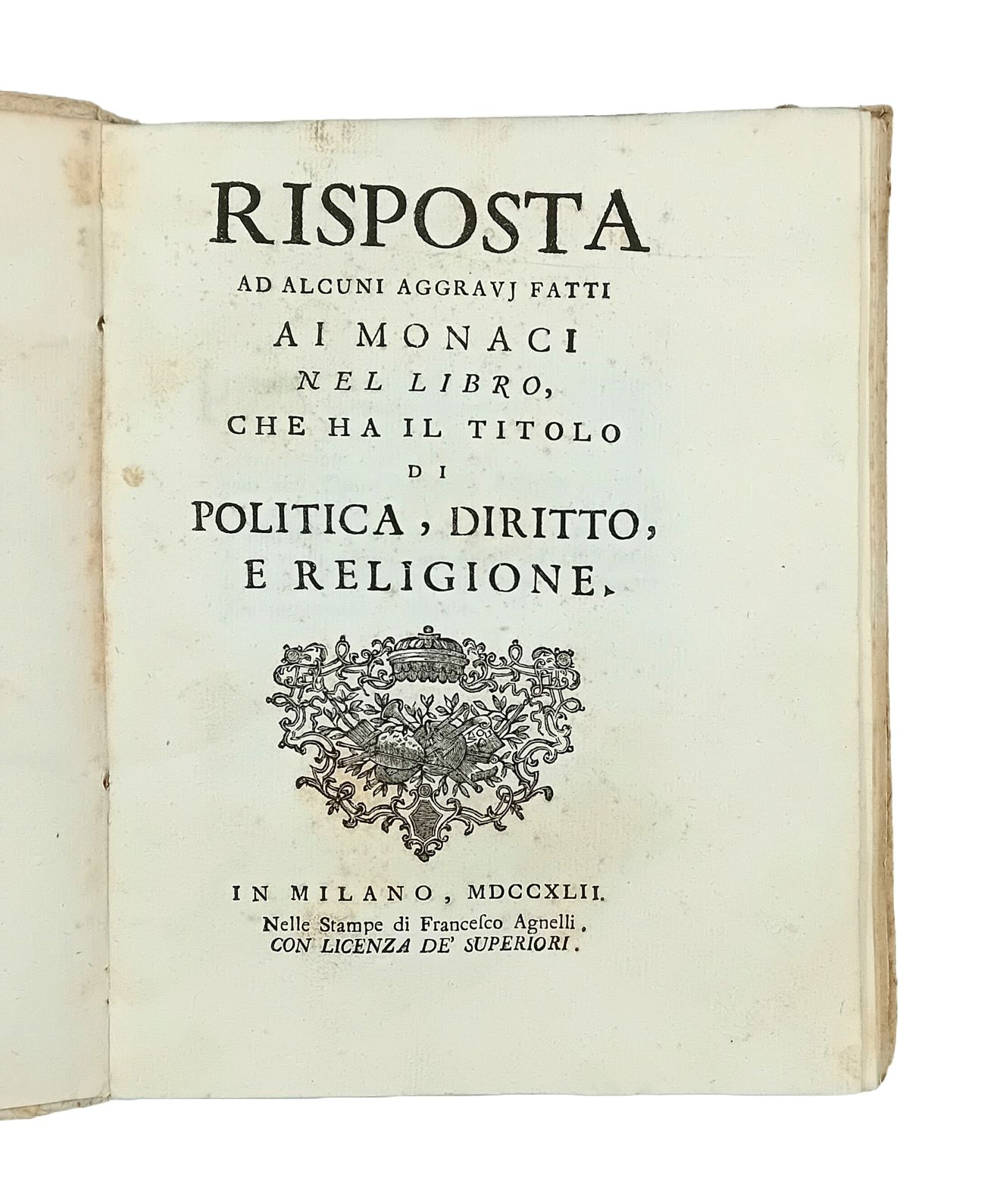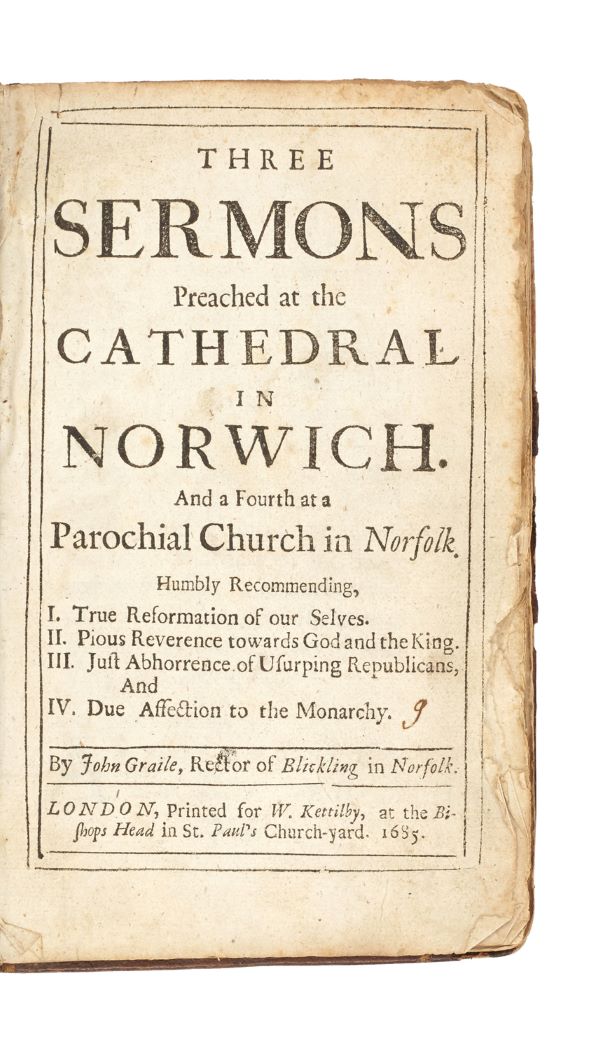
[MONASTICISM].
Risposta ad alcuni aggravi fatti ai monaci nel libro, che ha il titolo di Politica, diritto, e religione.
Milan, Francesco Agnelli, 1742.
4to, pp. 174, [2]; some spotting and foxing throughout, but largely light; in contemporary carta rustica, title in ink on spine; a good copy.

Added to your basket:
Risposta ad alcuni aggravi fatti ai monaci nel libro, che ha il titolo di Politica, diritto, e religione.
Only edition of this anonymous response to Giuseppe Gorini Corio’s controversial Politica, diritto, e religione, that had appeared in Milan at the start of the same year.
Although Corio’s work, kindly dubbed “ponderoso” by Stefano Meschini in the DBI, covered political and legal matters, it is only the final chapters, on religion, that concern the author of this response; in particular, he notes the ‘molte calunnie, e maldicenze che vi si leggono contro de’Monaci’. Over the course of twelve chapters, he reflects on the fate of Thomas Becket; the conduct and moral legitimacy of the crusades, and whether they were the cause of a collapse in Church discipline (the author is rather more sympathetic to the crusaders than was Corio); the role of the Knights Templar; flagellation; the importance of manual work; the relaxation of monastic rules and the wealth both of religious orders and of individual monks; the ceremonial role of abbots; the independence of monastic houses from episcopal authority; and, more broadly, the unreasonableness of the way Corio discusses anything to do with monasticism.
Although the author of the present response remains unknown, it has been suggested that it could be the work of the Cistercian Ambrogio Arrigoni (see entry on Corio in DBI, vol 58). It was one of a number of largely anonymous responses to Corio’s rather anti-clerical work.
OCLC records copies at Harvard and Ticino only.

